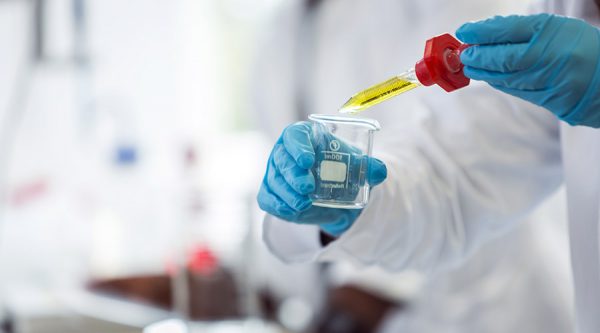Saturday 4th February 2017 is World Cancer Day – a day where the world comes together in unity in the fight against cancer. Here’s how Stirling research is helping to accelerate progress in the fight against cancer.
Investigating carcinogens in astro football pitches
In 2016, Professor Andrew Watterson identified cancer-causing chemicals in rubber crumb samples from 3G astro football pitches. The findings followed a report in the United States that linked cancer in 168 footballers with the 3G surfaces, leading to widespread calls for football authorities to investigate the matter further. By highlighting the lack of quality information, Professor Watterson is working to ensure the safety of synthetic rubber crumb pitches.

Encouraging cancer patients to keep fit
Most people with cancer are not physically active, with one study showing that people reduce their amount of physical activity after a diagnosis. Cancer care expert Gill Hubbard outlined the health benefits of physical activity to patients in a widely-shared article penned for The Conversation last year.
Physical activity can help people manage the side effects of cancer treatment. Being physically active during and after treatment improves cardio-respiratory fitness, muscle strength, physical well-being, quality of life, and reduces fatigue, anxiety and depression.

Listening to cancer patients – in their own words
Professor Mary Wells and her colleagues in the Nursing, Midwifery and Allied Health Professionals (NMAHP) Research Unit were at the forefront of a major University of Stirling report in October 2016, funded by Macmillan Cancer Support and the Scottish Government. The report sought to gain an account of the positive and negative experiences of cancer patients in their own words – something she said was “invaluable” to further improving cancer care in Scotland.
Improving wellbeing for patients after breast cancer
For people who’ve been afflicted in the past, the fear of the disease returning can have a significant impact on their wellbeing. To combat this, Dr Susanne Cruickshank is exploring how specialist breast cancer care nurses can help survivors manage their mental wellbeing.

Working to prevent cancer nationwide
Four in ten cancers in the United Kingdom are preventable, with prevention forming the foremost chapter of the Scottish Government’s cancer strategy. Professor Linda Bauld – a leading expert in public health – is at the frontline of cancer prevention in the UK.
She’s working to reduce the harm of tobacco, alcohol and sugar on the nation’s health through research and collaborations. Recently she’s been researching standardised plain packaging on tobacco products, influencing Scottish and UK Government policy.


